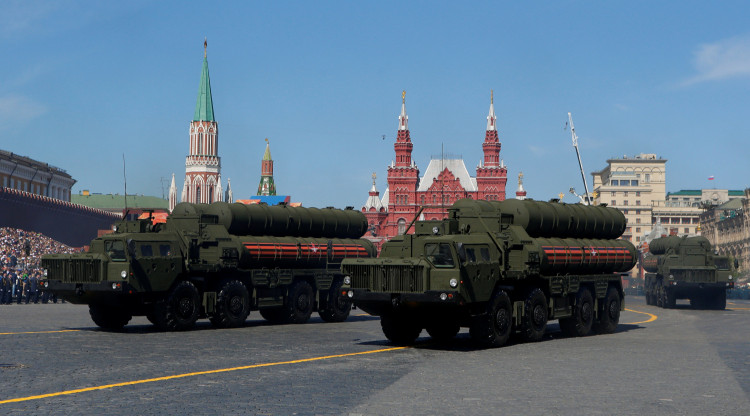US sanctions Chinese military
September 21, 2018 | Expert Insights

The Trump administration has imposed sanctions on the Chinese military for buying Russian fighter jets and missiles.
China has told the US to withdraw sanctions on its military over purchases of Russian jets and missiles or "bear the consequences".
Background
The United States and China are two of the largest economies in the world. Both countries consider the other as a partner in trade and an adversary in geopolitics. Diplomatic relations between the US and China was first established in 1844 with the Treaty of Wanghia. This agreement allowed the US to trade in Chinese ports. After the Qing Dynasty was overthrown, in 1911, the US recognized the legitimacy of the Republic of China (ROC) government.
The U.S.–China Strategic and Economic Dialogue were created in 2009. Every year, high-level representatives from both nations open up dialogue to improve economic partnership. In 2017, the meetings that occurred were reported as being “tense”. Upon conclusion, the two countries cancelled a joint press conference and did not release a statement. They also did not release a plan of action.
US President Donald Trump has previously been a critic of China. He has blamed the country for loss of jobs within the US and has often criticized the US trade deficit with China. Additionally, many conservative voices have blamed China in the increasing cyber-attacks on US digital infrastructure growth.
Analysis
In the latest action designed to punish Russia for alleged interference in the 2016 presidential election, Washington has sanctioned the Chinese military for their purchase of Russian weapon systems. US officials said the sanctions were placed on the Equipment Development Department (EDD), the branch of the People’s Liberation Army responsible for the weapons and equipment used by the Chinese military.
China bought 20 Russian Sukhoi-25 fighter jets last year and a batch of S-400 surface-to-air missiles this year from Rosoboronexport, the Russian state-owned arms exporter, according to the US. The American officials said the purchases constituted a “significant transaction” under a law aimed at punishing Russia for interfering in the 2016 election, triggering sanctions on the Chinese military entity.
One US official said the step was “significant”, marking this the first time the Trump administration had sanctioned an entity for buying significant Russian weapons under CAATSA, the Countering America’s Adversaries Through Sanctions Act. Congress passed the law in 2017, partly in an effort to ensure that President Donald Trump, who has been reluctant to criticise Russia, could not take a soft stance on Moscow.
While the sanctions were placed on EDD and its director, Li Shangfu, the US official said the “ultimate target” was Russia. The US also added 33 Russians to the list of people with whom entities are barred under CAATSA from doing significant military transactions, bringing the total to 72. Some of the newly added names were people who were indicted for alleged interference in the US presidential election.
The US state department said that in addition to responding to the interference in the US election, CAATSA was aimed at punishing Russia over its behaviour in eastern Ukraine and “other malign activities”. It added that the law had already deterred “billions of dollars’ worth of potential arms exports from Russia”.
The US official said the Trump administration hoped that the EDD sanctions would send a message to other potential buyers of Russian arms.
Counterpoint
Despite the threat against purchasing Russian weapon system, Washington’s two allies, India and Turkey are actively considering Russia’s famed anti-aircraft missile system. Ankara and New Delhi are lobbying hard to earn exemptions from the CAATSA sanctions on Moscow so that they can proceed with their principle purchases.
The sanction on the Chinese military will have a negligible impact as a majority of China’s military hardware is supplied by domestic manufacturers. If anything, the sanctions are a stop-gap solution to China’s rising military partnership with Russia.
Assessment
Our assessment is that the present sanctions are directed at Russia rather than China. We feel that this is more likely to encourage deeper engagement between Beijing and Moscow who, to a larger extent, share a common worldview and are keen to resist what they perceive as US dominance on geopolitical affairs. We believe that China's close military relationship is underscored by its participation in the recent Vostok exercises and it is unlikely that there will be a reduction in their procurement of sophisticated weapons from Russia.








Comments